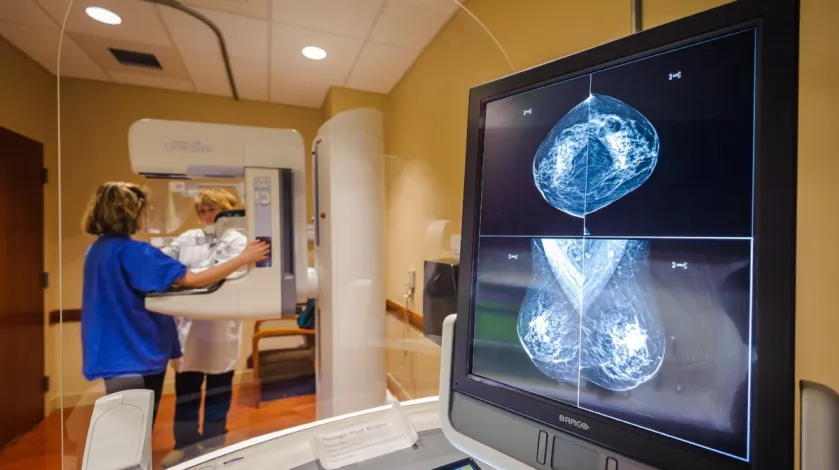Six Things to Know About Breast Cancer Care
Author

Ko Un Clara Park, MD, FACS
October is Breast Cancer Awareness Month, when we shine a light on the disease that affects one in eight American women. It’s also an opportune time to spread awareness about the importance of preventative screening, which can detect breast cancer early when it’s easier to treat.
Breast cancer is the second most common cancer in women in the U.S (after skin cancers), and the second leading cause of cancer death in woman (after lung cancer).
According to the American Cancer Society, about 316,950 women will be diagnosed with invasive breast cancer in 2025 and 42,170 will die from the disease.
Ko Un Clara Park, MD, a breast surgical oncologist at the Dana-Farber Brigham Cancer Center at South Shore Health answers questions about breast cancer risk factors, symptoms and treatment and how routine screening, including annual mammograms, helps save lives.
Why is routine breast cancer screening so important and at what age should people start?
Most breast cancers do not present with any symptoms such as a lump. Screening for breast cancer can help detect the cancer when it is small and curable.
Screening mammograms are recommended for women over the age of 40 and earlier for women with high risk for breast cancer.
What are some of the risk factors for breast cancer and are there lifestyle changes that can lower someone’s risk?
There are many risk factors for breast cancer ranging from non-modifiable factors like age, family history of cancer, genetics, environmental factors and modifiable factors like lifestyle. Being physically active, not smoking, and not being overweight or obese can help lower one’s risk.
What are some symptoms of breast cancer that should raise concern and be discussed with your healthcare provider?
Symptoms that should warrant an evaluation with the healthcare provider include a new lump (either in the breast or underarm area), nipple discharge, thickening or swelling of the part of the breast, skin changes (such as dimpling of breast skin, redness or a new rash), and new nipple inversion (pulling in of the nipple).
What kind of treatment options are available for someone diagnosed with breast cancer?
There are a wide range of treatment options for breast cancer ranging from a combination of surgery, radiation therapy, anti-hormone therapy, chemotherapy, and targeted therapies – such as Her2 directed therapy and immunotherapy.
Every breast cancer is unique. Depending on the type of breast cancer, size, and stage of the cancer will determine the sequence of treatment and the type of treatment.
How have advancements in the detection and treatment of breast cancer improved patient care and outcomes?
Recent advancements have allowed us to detect cancer when it is asymptomatic and very small, drastically improving patient outcomes.
Early detection of cancer means that we are able to perform breast-saving operations and even combine the breast cancer operation with reconstructive techniques, which is known as oncoplastic surgery.
Treatment options are now more personalized in such a way, that we now have abilities to test the genomics of the individual’s cancer to help direct therapy and thus minimize the toxicities of treatment.
How optimistic are you about the progress we have made and for the future of breast cancer care?
We are learning more and more every day about breast cancer. Treatments are becoming more personalized and there are many studies focusing on quality of life and minimizing side effects.
For instance, there is an ongoing clinical trial evaluating the safety of completely eliminating surgery for breast cancer.
I’m optimistic that the future of breast cancer care will look very different than the care we currently deliver.
It gives me a lot of hope for patients and their families that while this is a very prevalent disease, we can provide the care that allows patients to return to their baseline function and enjoy the life they want.
Ko Un Clara Park, MD, FACS is a Breast Surgical Oncologist at the Dana-Farber Brigham Cancer Center at South Shore Health. Learn more about Breast Care at South Shore Health.
Author

Ko Un Clara Park, MD, FACS








